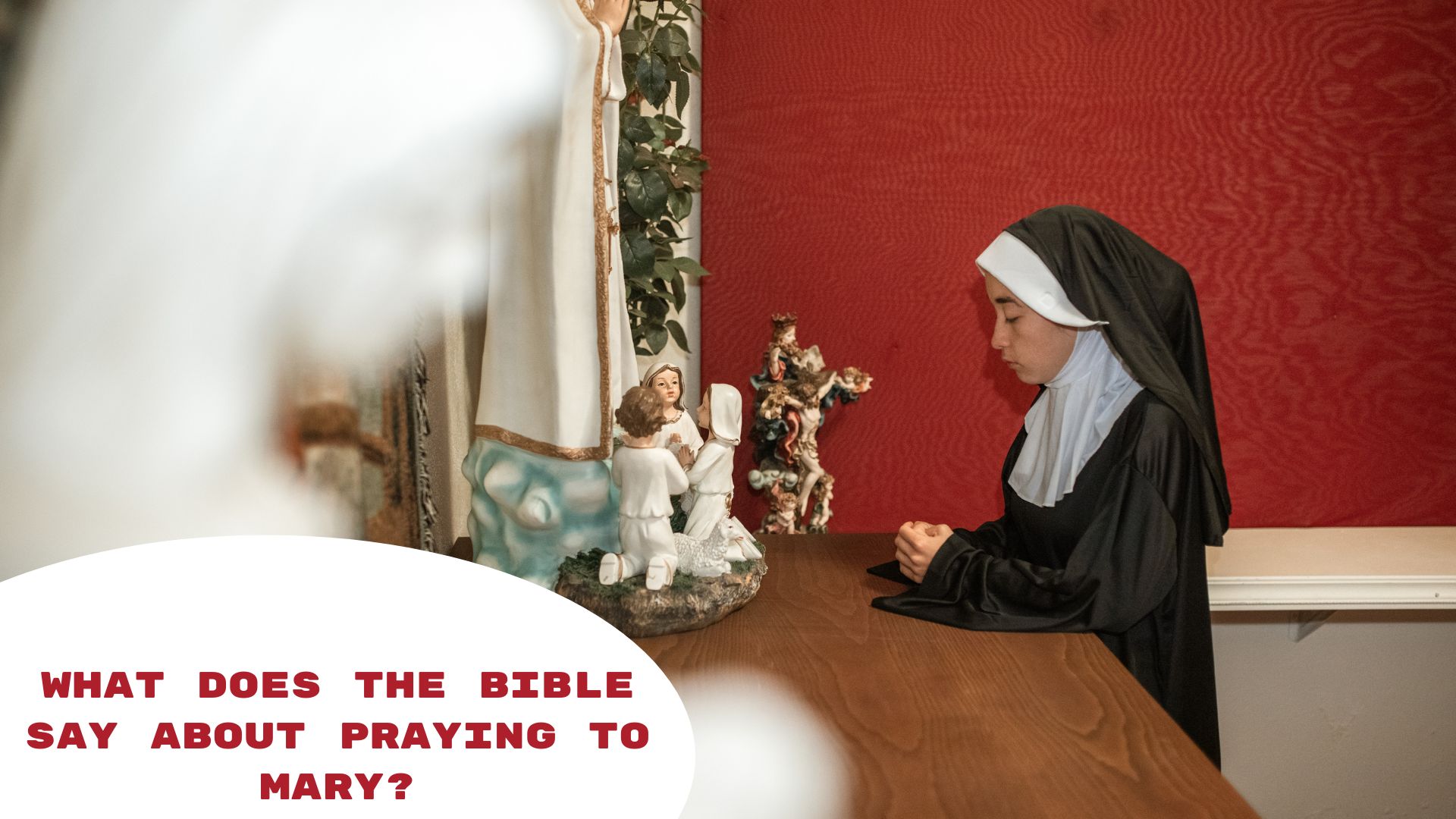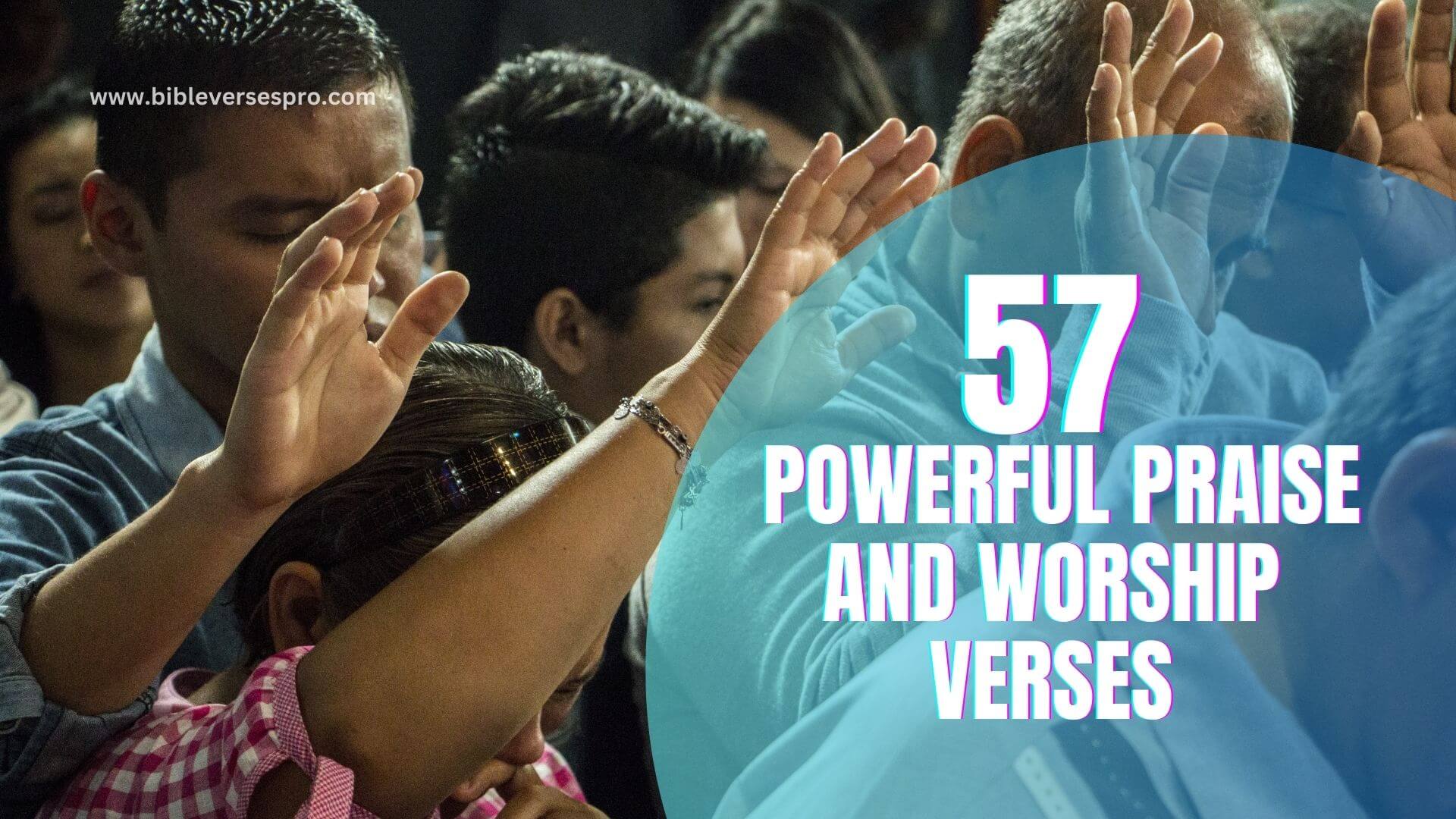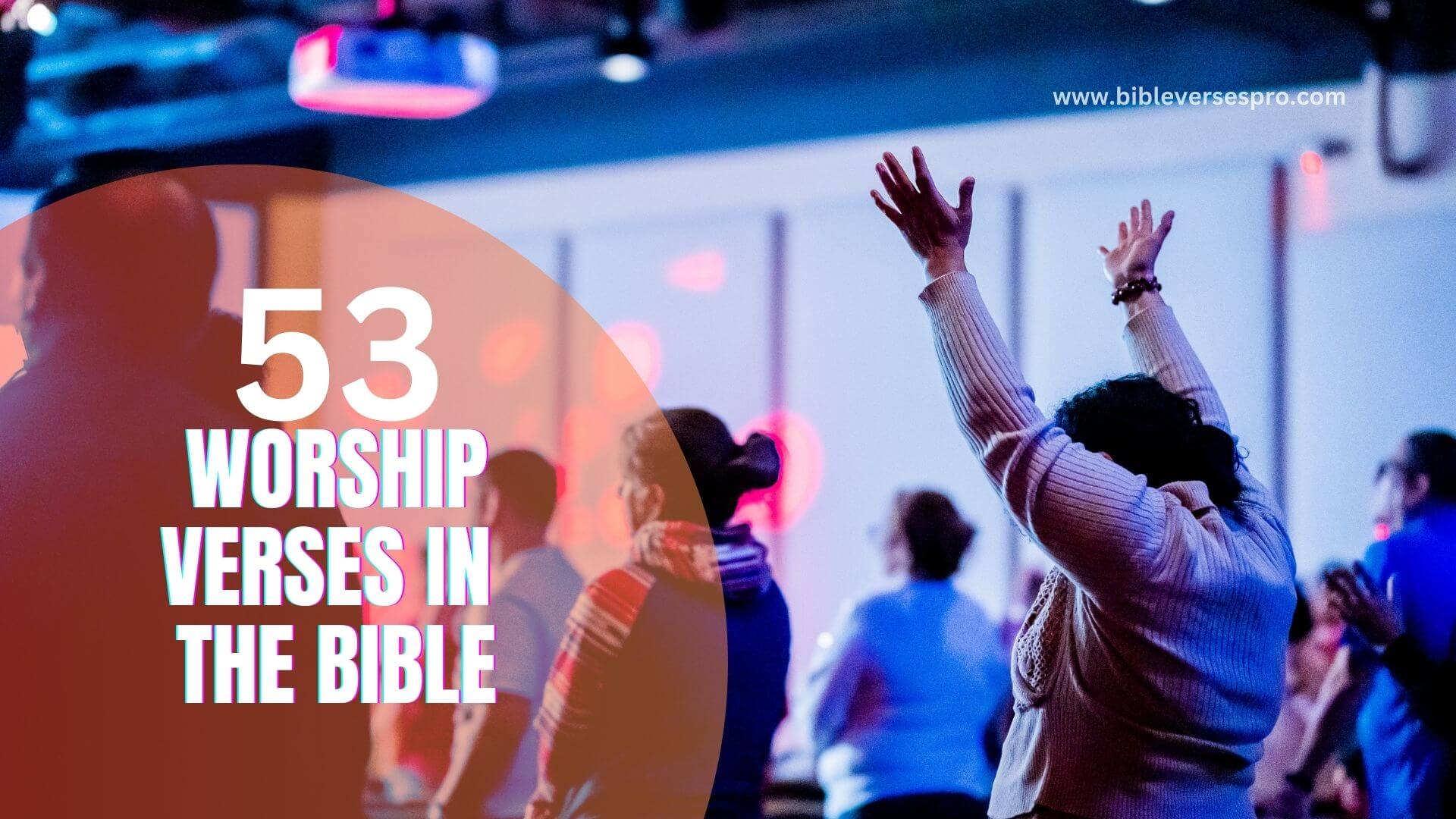The practice of praying to Mary has been a topic of theological discussion and debate throughout Christian history.
While some traditions emphasize the intercessory role of Mary and encourage prayers directed to her, others view such prayers as inconsistent with biblical teachings.
To understand what does the Bible say about praying to Mary, it is crucial to examine the Scriptures and explore the passages that shed light on this matter.
What Does The Bible Say About Praying To Mary?
Prayer is a vital aspect of the Christian faith, allowing believers to communicate with God and seek His guidance, comfort, and intercession.
However, the topic of praying to Mary, the mother of Jesus, has been a subject of theological debate and varying practices within different Christian traditions.
In this article, we will explore what the Bible says about praying to Mary, examining relevant scriptures and considering the broader biblical principles that shape our understanding.
Mary’s Role In Scripture
Mary holds a significant role in the birth of Jesus as the chosen vessel through whom God brought His Son into the world.
She displayed faith and obedience to God’s plan (Luke 1:38) and serves as an example of humility and devotion to God.
The Bible does not explicitly grant Mary the role of an intercessor or instruct believers to pray to her.
Intercessory Prayer In Scripture
The Bible encourages believers to pray for one another (James 5:16) and to approach God directly through Jesus Christ, our High Priest (Hebrews 4:14-16).
Jesus Himself taught His disciples to pray to the Father in His name (John 14:13-14), emphasizing the centrality of a personal relationship with God through Jesus as the mediator.
One Mediator Between God And Humanity
1 Timothy 2:5, the apostle Paul writes, “For there is one God, and there is one mediator between God and men, the man Christ Jesus.” This verse highlights the unique role of Jesus as the sole mediator between God and humanity.
It affirms that believers have direct access to God through Christ without the need for additional intermediaries.
Honoring Mary And Her Example
While the Bible does not endorse praying to Mary, it does call for honoring her as the mother of Jesus.
Jesus Himself demonstrated care for His mother when He entrusted her to the care of the disciple John (John 19:26-27).
We can honor Mary by recognizing her significant role in salvation history and respecting her faith and obedience to God.
Is It Right To Pray Through Mary?
No, it is not right to pray through Mary.
The practice of praying through Mary, known as Marian’s devotion, has been a subject of theological discussion within Christian circles.
While some believers find comfort and solace in seeking Mary’s intercession, it is important to examine this practice in light of biblical teachings.
In this section, we will explore the question, “Is it right to pray through Mary?” and provide biblical explanations that argue against the practice.
The Role Of Jesus As The Mediator
The Bible clearly states that Jesus Christ is the sole mediator between God and humanity (1 Timothy 2:5).
Jesus Himself taught His disciples to pray to the Father in His name (John 14:13-14), indicating that our prayers are to be directed to God through Him.
This highlights the exclusive role of Jesus as the mediator, leaving no room for the intercessory role of Mary or any other human being.
The Sufficiency Of Christ’s Sacrifice
Another crucial aspect is the sufficiency of Christ’s sacrifice on the cross. Through His death and resurrection, Jesus provided redemption and direct access to God for believers.
The book of Hebrews emphasizes the superiority of Christ’s priesthood, highlighting that His sacrifice once and for all is sufficient to cleanse us from sin and grant us access to God (Hebrews 9:11-14).
The Absence Of Scriptural Mandate
While Mary played a significant role in the birth of Jesus, the Bible does not provide any explicit instructions or examples that endorse praying through her.
The New Testament focuses on prayer directed to God the Father through Jesus Christ, with no indication of a need for additional intermediaries.
It is important to base our practices on explicit biblical teachings rather than relying on assumptions or traditions.
The Danger Of Diverting Focus
Praying through Mary can inadvertently divert our focus from the centrality of Christ in our spiritual lives.
Our relationship with God should be direct and personal, grounded in the work of Jesus Christ.
Placing emphasis on the intercession of Mary or any other figure may unintentionally undermine the unique role of Jesus as our Savior, Mediator, and Advocate.
The Primacy Of Worshiping God Alone
Throughout the Bible, we are commanded to worship and pray to God alone (Exodus 20:3-5; Matthew 4:10).
Prayer is a form of worship, and it should be directed solely to God. Elevating any human being, including Mary, to the level of intercessor can blur the lines of worship and potentially lead to idolatrous practices.
What Happens When You Pray To Mary?
There’s no positive effect to praying through Mary rather it breaches the biblical standard
The practice of praying to Mary, the mother of Jesus, has long been a subject of theological discussion within Christianity.
While some believers hold the belief that praying to Mary yields certain outcomes, there is an alternative perspective that asserts that nothing happens when you pray to Mary.
This viewpoint is rooted in a commitment to biblical standards and challenges the assumption that seeking Mary’s intercession is both effective and aligned with scriptural teachings.
Sole Mediatorship Of Christ
A primary biblical principle supporting the perspective that nothing happens when you pray to Mary is the teaching on the sole mediatorship of Christ.
The Bible repeatedly affirms that Jesus Christ is the only mediator between God and humanity (1 Timothy 2:5).
By seeking Mary’s intercession, believers risk undermining the exclusive role of Jesus as the intercessor, advocate, and mediator on their behalf.
Direct Access To God
The New Testament emphasizes the direct access believers have to God through Jesus Christ.
In His teachings, Jesus Himself encouraged His followers to pray directly to the Father (Matthew 6:9-13), demonstrating that our prayers are to be directed to God without the need for intermediaries.
By bypassing this direct access and seeking Mary’s intercession, believers potentially overlook the privilege and power of personal communion with God.
Exclusivity Of Worship
Prayer is a form of worship, and the Bible consistently upholds the exclusivity of worshiping God alone (Exodus 20:3-5).
When believers turn to Mary in prayer, they risk encroaching upon the realm of worship that is rightfully due to God alone.
Elevating Mary to a position of intercession and devotion, rather than focusing solely on God, can blur the lines and lead to practices that contradict biblical standards.
Lack Of Scriptural Mandate
A crucial consideration is the absence of a clear scriptural mandate for praying to Mary.
While the Bible provides accounts of Mary’s significance in the birth of Jesus and acknowledges her faithfulness, it does not explicitly instruct believers to seek her intercession in prayer.
Relying on practices that lack explicit biblical endorsement can lead to potential deviations from sound theological foundations.
Potential For Misplaced Focus
Praying to Mary carries the risk of diverting focus away from God and His redemptive work through Jesus Christ.
The New Testament consistently emphasizes the centrality of Christ’s sacrificial death and resurrection as the means of salvation and access to God.
Placing excessive emphasis on Mary’s intercession may inadvertently shift attention away from the unique role of Jesus and His redemptive power.
Is The Virgin Mary prayer In The Bible?
Yes, the Virgin Mary prayer is in the Bible. While the Bible acknowledges the importance of Mary’s role in salvation history, it does not explicitly prescribe praying directly to her.
The Virgin Mary holds a significant role in Christian theology, particularly within Catholic and Orthodox traditions, where devotion to her is deeply ingrained.
Mary’s Unique Role In Salvation
The Bible recognizes the extraordinary role of Mary as the chosen vessel through whom Jesus, the Son of God, entered the world.
From the Annunciation to the Nativity, various biblical passages emphasize Mary’s faith, obedience, and humility.
These narratives highlight her significance as the mother of Jesus and affirm her blessedness among women.
Intercessory Role Of Saints And Believers
While the Bible affirms the concept of intercession, it consistently emphasizes Jesus Christ as the primary mediator between God and humanity (1 Timothy 2:5).
Believers are called to approach God through Jesus and are encouraged to pray for one another (James 5:16).
The biblical model of intercession involves seeking the prayers and support of fellow believers, who are part of the Body of Christ.
The Power Of Christ’s Mediation
Scripture attests to the unique and central role of Jesus Christ as the mediator and intercessor for believers.
He is described as the one who sits at the right hand of God, interceding on behalf of His followers (Romans 8:34, Hebrews 7:25).
It is through Jesus that believers find forgiveness, reconciliation, and access to the Father.
The Importance Of Proper Worship
The Bible consistently upholds the principle of worshiping God alone. Throughout both the Old and New Testaments, God’s people are instructed to worship Him exclusively, avoiding the veneration of created beings or idols (Exodus 20:3-5, Matthew 4:10).
While Mary is highly esteemed for her role in God’s plan, Scripture does not endorse or command direct prayer to her.
Respecting Scriptural Boundaries
It is crucial for believers to exercise discernment and adhere to scriptural boundaries when it comes to prayer.
While some Christians choose to express devotion to Mary through prayers of gratitude and honor, it is important to maintain the distinction between honoring Mary and offering prayers that should be reserved for God alone.
Why Do Catholics Pray To Mary?
Catholic devotion to the Virgin Mary has been an integral part of their faith for centuries. One aspect that stands out is the practice of praying to Mary.
While some may question this practice, it is essential to delve into the theological foundations and understand why Catholics pray to Mary.
In this section, we will look at the reasons behind Catholic devotion to Mary and shed light on the significance it holds for believers.
Mary’s Role As The Mother Of Jesus
Catholics believe that Mary’s unique role as the mother of Jesus places her in a position of honor and intercession.
Mary’s closeness to Jesus during His earthly life and her intimate knowledge of Him allow Catholics to seek her prayers and intercession as a loving mother who cares for her children.
Mary As a Model Of Faith And Obedience
Mary’s unwavering faith, obedience, and complete surrender to God’s will serve as an inspiration for Catholics.
Her “yes” to God’s plan at the Annunciation sets an example of faith and trust that believers aspire to emulate.
Praying to Mary allows Catholics to seek her guidance in living a life of faithfulness and submission to God’s will.
Seeking Intercession And Prayers
Catholics view Mary as a powerful intercessor who can bring their prayers and petitions before God.
Just as one might ask a friend or family member to pray for them, Catholics believe that Mary’s close relationship with Jesus makes her an influential advocate for their needs.
Praying to Mary is seen as seeking her assistance in presenting their intentions to God.
Mary’s Compassion and Motherly Care
Catholics turn to Mary in times of need, seeking her compassionate intercession.
They believe that Mary understands the challenges and struggles of human life and can provide comfort, solace, and maternal care.
Praying to Mary allows Catholics to experience her loving presence and find reassurance in their journey of faith.
Tradition and Church Teachings
Catholic devotion to Mary is deeply rooted in tradition and church teachings.
The early Church Fathers held a profound reverence for Mary, and this veneration has been passed down through the generations.
The Catechism of the Catholic Church affirms the role of Mary in God’s plan of salvation and encourages devotion to her as a means of deepening one’s relationship with Jesus.
Conclusion
When examining the biblical perspective on praying to Mary, it becomes clear that the practice is not supported by explicit scriptural commands or examples.
The Bible consistently emphasizes the unique role of Jesus Christ as the mediator between God and humanity.
It teaches believers to approach God directly through Jesus and encourages prayer and intercession among fellow believers.
While the Bible acknowledges the special role of Mary as the mother of Jesus and her faithfulness, it does not endorse or command prayer directed specifically to her.







